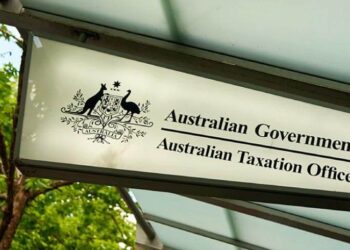In research set to be rolled out next year, AMP SMSF aims to question whether the current regulations around investment strategies make sense for an SMSF trustee.
“When you think about the process that a trustee has to go through to put in an investment strategy, it’s the same process that large funds have to do that was put in the legislation back in 1993 when SMSFs didn’t really exist,” said AMP SMSF’s head of technical, policy and education services, Peter Burgess, at a roundtable in Sydney yesterday.
“For some, it’s a tick-of-the-box type process, it’s a templated process. Does it really add any value, does it have any meaning for trustees? That’s the question,” he said.
Having an investment strategy focused more on goal setting and benchmarking could potentially be more worthwhile than what the current law requires, Mr Burgess added.



The other thing about legislatively having to have an investment strategy is that it gives the ATO another thing to penalise trustees for if they don’t have one, or breach the investment strategy. It is not going to make any difference to the trustees investment decisions if they have one or not, just increases the chances of the ATO raising additional revenue.
Troy’s passion is fantastic. I expect its a great asset for your clients. I expect the same passion drives most people commenting here aswell.
Re business no operating under the SIS Act. I believe the point Stuart was making is that business can operate perfectly well without having legislation requiring them to have a written plan and prescribing what’s in the plan. SMSF trustees can do just as well without having legislation requiring them to have a plan and prescribing what’s in that. I believe having a plan adds value, but having legislation saying this doesn’t. People who plan will do so anyway so its just red tape for them. People who don’t plan will also just find its more red tape for them to tick off.
My guess is most people know that if you plan you’ll get a better outcome. The comments against it being in legislation are based on not wanting officials in Canberra to set out the same way of planning for everyone.
Stuart – running a business does not fall under the SIS act, so yes it is very different. Containing their strategy in their heads – really? Also, not all SMSF trustee’s have a planner (hence the ‘self managed’). The issue here is not concerning the trustee’s that follow the initial plan, the issue lies with trustee’s that DO NOT follow an initial plan and the only way to prompt them is to ensure they have updated investment strategies every few years. Please do not mistake my passion for this for anything else. The work we have done for our trustees over the last 12 months has been incredibly positive and a real eye opener for many many trustees (and granted, not all as many also have a good grip on what they are doing)
Why have it at all? Most SMSF’s have the strategy in their heads and very few are able to reproduce that knowledge in the format that is expected of them. A significant number have run small businesses very successfully without an investment strategy except for what is contained in their heads. There is absolutely no reason why running an SMSF would be any different. The test, would more funds fail if they did not have investment strategies – in my opinion, absolutely not because for the vast majority have a strategy because they have to not because they follow it or are even familiar with it. Those that use financial planners will continue to do so and have the plan as set out in the plan.
Investment strategies for SMSF reflects the clients already thought through and actioned investments. Investment selection is one of the many reasons people enter SMSF’s. Many trustees investment actions are in response to current investment holdings within & outside a SMSF. They are often diversifying their investments when most of the SMSF is in shares & cash/TD. As often there is sufficient property holdings outside of super. SMSF trustees are not given enough credit that they know what they are doing when investing & where external self interested parties only look at what the SMSF is invested in. It needs to be remembered that the retirement savings of Australians are not just invested in super, they are invested in a number of vehicles for security, protection and diversity against all sorts of competing and altering interest & legislative landscapes. The investment strategy is merely documenting a legislative requirement of what the trustee has in their mind.
The investment strategy is designed for Trustee’s to ‘own’ their decision and document the fact they have thought about it. Of course it is adjusted to suit what they have in place a lot of the time also, however at least it shows they have sat down and are comfortable with what they have in place. I see it as ownership of their decisions, whether they turn out to be right or wrong at least they will always have compliant investments within the fund that they control. Simply speaking, without explaining to clients that the ATO is cracking down on these, we would not have had the response we did with clients coming in and sitting with us. If it was optional, I wonder how many of these clients would have come in… not many, if any…
Whilst in theory an investment strategy is a useful and even valuable item, in practice it is just another bit of paper to sign.
As they are often “just a template” that des not need to meet any standards or be lodged or checked by a third party, then a trustee can change it as often as they like. Rather then making investment decisions based on their investment strategy, I suspect many Trustees alter their investment strategy to justify their decisions.
Troy’s experience shows that talking to clients can add masses of value. And all under the current legislation. Its a good advisor adding value and not the investment strategy though.
Everyone makes plans and strategies in different ways though. Legislation detailing how to do this is counterproductive for people who plan differently to what the legislation says.
The same happens in small businesses – generally taking time out to plan gets a better result, but everyone has their own way of doing this aswell. No-one suggests legislating that small business be required by legislation to have business plans, let alone what must be included in one. Its the business owner talking to good advisors that achieves the good outcome – as Troy has found.
Really?? add no value… We have just gone through an updated over 150 investment strategies for clients, of that we found about 15% of clients should not have an SMSF (we did not set these up) and this process made them realise this. Of the other 85% a large majority of them were highly weighted in one asset and through the process learnt about diversification and what other options there are out there. We also had a large number of clients who had not considered insurances within the super fund in the event of death or disability. I do not think questioning the relevance of SMSF investment strategies is even a topic – maybe questioning the sub standard quality of many investment strategies is a better heading..